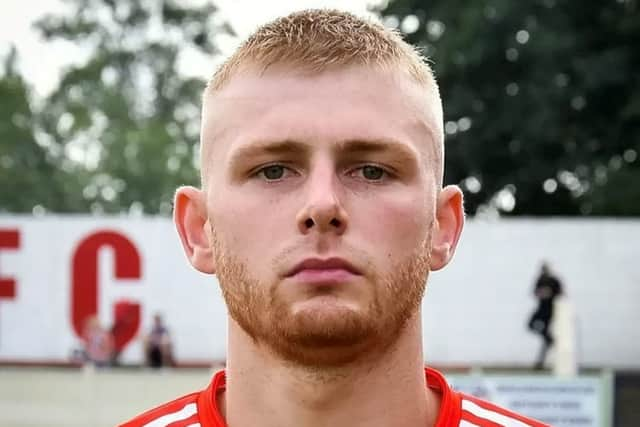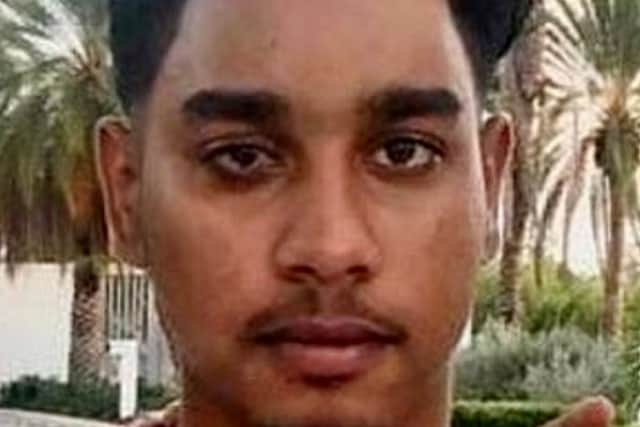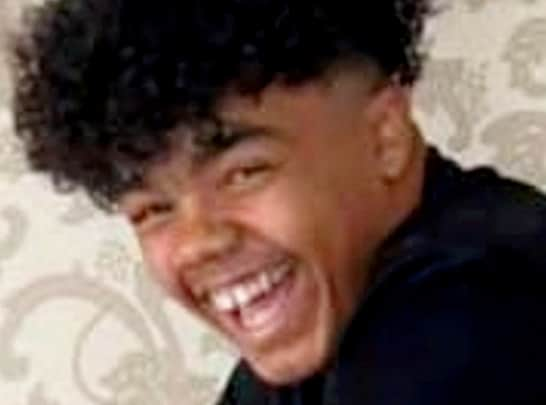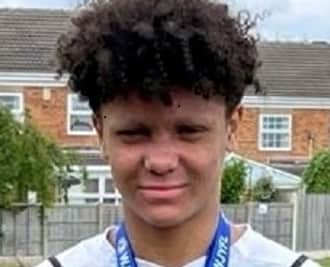‘For the flex’: Birmingham youths tell reasons why they carry knives
and live on Freeview channel 276
Youths from the streets of Birmingham and the Black Country have revealed why they carry knives - including "for the flex" and to "even the playing field" during fights.
Teenagers living in the West Midlands have spoken out after the region was named the most dangerous place in the country for knife crime. West Midlands Police recorded the highest rate of 178 offences per 100,000 population during 2022/23, ONS data shows.
Advertisement
Hide AdAdvertisement
Hide AdNow a group of youths have told why they carry blades in Birmingham and the Black Country, where 20 people have died as result of knife crime in the last two years. One girl, aged just 15, who "regularly carries" says she holds a knife for "the flex" [reputation] also adding that it makes her feel safe.
Bethany (not her real name) said: "I'm a girl, you need to protect yourself. I don't carry it all the time, but if I know I'm going to something in a bad area I might bring it with me. I'd never use it. But my area is pretty bad. It's the only thing you can do these days."


Another boy, aged 14, said he carried a knife but would use it as a "last resort" in case he got into confrontations with his 'opps' [opponents or enemies]. The lad, using a false name of Tyler, said: "It's only a little ting [weapon]. It's just like a little flick blade – just in case I get into anything. It makes things even, you know? If someone tries to stab you, you want something to get them back."
Advertisement
Hide AdAdvertisement
Hide AdWhen asked if he would ever use the knife, 'Tyler' said he wouldn't want to, but if he had to - he most likely would. Tyler added: "I'm not out looking for trouble really. We're just having fun and that. But we have opps [opponents or enemies], if they come at us I might have to use it – but it's a last resort."


Jack, a 15-year-old, also using a fake name, said that he used to carry a knife to intimidate people, but actually stopped after someone pulled a blade on him. He added: "I was carrying when I was 14, it scared people, you pull it out and they just start running. It was like a little ninja sword thing.
"I stopped when I was nearly stabbed. I got into something with this guy, said what I was gonna do, and he pulled out this knife and I ran, never carried since. It's not worth it."
Taylor, 15, also using a pseudonym, said that knife amnesty doesn't help because of concerns about linking the knives to previous crimes. He said: "I'm not gonna say if I'm carrying, but you have seen all these people getting stabbed. If having something gives me a fighting chance I'm going to carry it. The knife hand-in bins don't really work. You don't want them getting your prints. Most just throw them into the bushes, hope no one finds it."
Advertisement
Hide AdAdvertisement
Hide Ad

Paul, another 16-year-old using a fake name, said he feels like he can't go to the police because he will be seen as a 'snitch'. Paul said: "If anything happens you have to deal with it yourself, the police won't do anything.
"They'll come down and ask questions, but at the end of the day, if you're fighting, it's too late for that, isn't it? You don't want to be a snitch either. You get a bad reputation like that, people come at you for it. I only carry because it scares people who might want to come at me."
West Midlands labelled Britain’s knife crime capital
The youths have spoken out after a number of high-profile knife incidents in the last two years, with the majority of cases involving youths under the age of 20. Earlier this month Isaac Brown, 15, was stabbed to death in West Bromwich and two youths, aged 13 and 15, have been charged with his murder.
The month previously, Harleigh Hepworth, 17, was found with fatal stab wounds in a park in Wolverhampton. In November last year Shawn Seesahai, 19, was also knifed to death in a Wolverhampton park and two boys, aged 12, are accused of his murder. And just two weeks ago two men were jailed for life for murdering semi-professional footballer Cody Fisher on a nightclub dancefloor in Birmingham.
Advertisement
Hide AdAdvertisement
Hide Ad

West Midlands Police and partner knife amnesty organisations continue to fight to tackle knife crime in the West Midlands. Organisations include the James Brindley Foundation who are working to reduce the number of knives on the streets by introducing knife amnesty bins.
A police spokesperson said: "We know how destructive and cruel knife crime is and we are working with partners across the West Midlands to educate youngsters on the dangers of carrying knives. Reducing serious youth violence is a priority for us with programmes and activities to deter and divert young people from criminal and anti-social behaviour.
"Our officers work to identify young people at risk and invest in them and their families to find better opportunities and offer support for young people on the cusp of exploitation, gangs, or violence. There are also early help officers who are linked into family hubs and young person officers who works with partners across our communities.
"West Midlands Police has Project Guardian which provides additional capabilities to work to respond to key areas and prevent violence, with regular unannounced patrols, to disrupt and deter crime and violence.
Advertisement
Hide AdAdvertisement
Hide Ad"Services are also commissioned across voluntary, charity and community organisations as well as providing inputs and lived experience mentoring in our schools and colleges. We also signpost vulnerable youngsters and their families to support networks across the region including the Youth Offending Service and drugs and alcohol services."